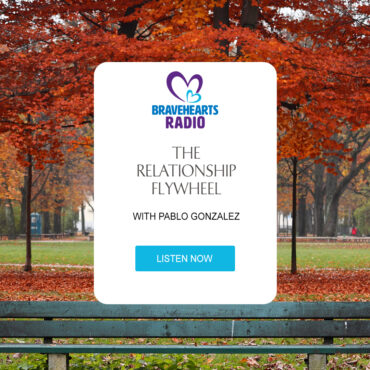
The Relationship Flywheel with Pablo Gonzalez
I call the idea “Coperceiving”. Have you ever heard someone describe their idea and you thought, Oh yeah! That just has to be right! I already knew that, and you […]
This month I’m concluding a brief series on culture. In the past couple months, we’ve discussed respect and credibility, two of the three most important aspects of culture, as identified by employees. This month we’ll discuss the third aspect; Fairness.
Fairness is an idea that is a terrific topic here at Perspective-Power.com because a lot of what we consider “fair” is a matter of perspective. What’s fair to me, might be unfair to you, and what’s fair to you might be unfair to me. When you think of fairness are you more inclined to be thinking “equality”? Or, does “equity” come to mind? Perhaps something else?
I’ve heard fairness described as the argument of fools and children. That’s too harsh a judgment, in my judgment. Even children (perhaps especially children) are aware of the rules of fair play — Rules that have been decided and are agreed upon and understood. And that is, I reckon, what employees might be thinking about when they think about fairness.
I expect that another way to look at what people mean by fairness is to think of fairness in terms of reasonableness. What’s reasonable is fair, and what’s fair is reasonable. And as Aristotle said, “Reasonableness is the pillar of integrity.” I think it’s very interesting to note that Aristotle described reasonableness as the pillar of integrity, rather than one of the pillars.
Yes, reasonableness is that important! And yes, if that is indeed what people are thinking of when they cite fairness as an important part of culture, then indeed, fairness is a pillar upon which to build a culture and any type of interpersonal relationship.
One of my favorite stories about fairness involves three kids who went to watch a baseball game. Only the tallest was able to see over the fence. “That’s not fair!” cried the other two. Luckily there were three old wooden crates nearby and when the each stood on one, the medium kid could also see the game. “Still not fair!” cried the smallest kid. So the tallest kid stacked his crate on top of the smallest kid’s crate and now all three could see over the fence. It’s a nice story, with a happy ending, and it’s often used to illustrate the distinction between equality (each kid having one crate) and equity (each being able to see the game)
When I told the story to a group of high school students last summer at a workshop on gender equity vs equality, one of the young people had a terrific question. She asked, “What if they took down the fence?”
That’s a very different perspective, and really something to think about.
Until next time, Be Well!!
Brian Reinbold invites you to Dream Bigger, Accomplish More, and Have More Fun than you ever thought possible. As a leadership facilitator, coach and mentor, his innovative approach to personal leadership and organizational development helps individuals and organizations.
This Article was written by co-Founder of Perspective-Power, Brian Reinbold: Originally written for Chicago SHRM (Society of Human Resource Management) January 2017 Column: “Organizational Development Perspectives. Fresh ideas on Leadership, Culture and Communication”

Brian Reinbold April 26, 2021
I call the idea “Coperceiving”. Have you ever heard someone describe their idea and you thought, Oh yeah! That just has to be right! I already knew that, and you […]
Copyright Bravehearts Radio, 2019-2021